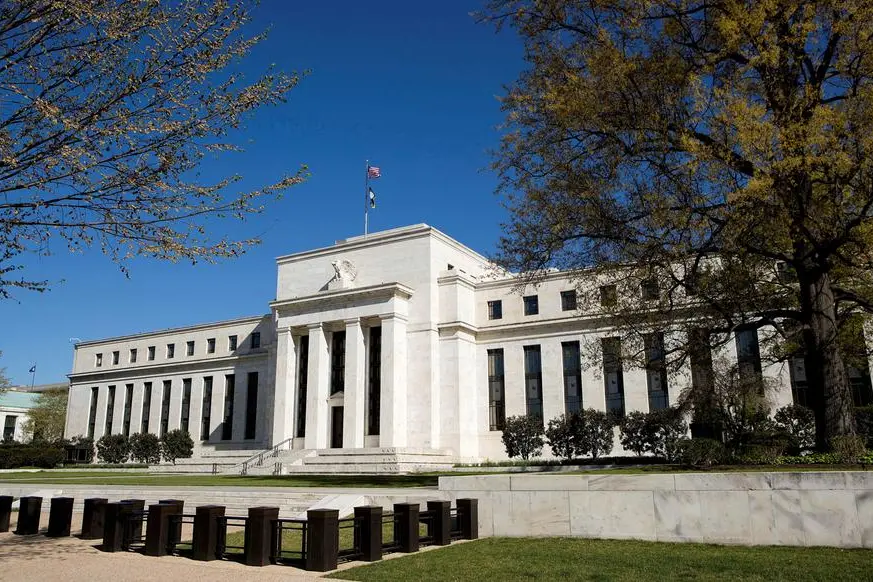PHOTO
WASHINGTON - Federal Reserve Chair Jerome Powell said on Wednesday the U.S. central bank will make interest rate decisions "when and as" they are needed, pushing back on a suggestion that a September rate cut could be seen as a political act ahead of the fall presidential election.
"Our undertaking is to make decisions when and as they need to be made, based on the data, the incoming data, the evolving outlook and the balance of risks, and not in consideration of other factors, and that would include political factors," Powell said in a hearing before the House Financial Services Committee. "We have a long history of doing that, including during election years...Anything we do will be very well grounded. It's just not appropriate for us to get into the business of thinking about election cycles at all, one way or the other."
Powell was responding to a question during a committee hearing from U.S. Representative Mike Lawler, Republican of New York, about whether a September rate cut, currently given a roughly 70% probability by investors, could be seen as trying to tilt the playing field ahead of the Nov. 5 elections.
The state of the economy, and particularly the surge in housing, food and other costs in recent years, has been a potent issue for Republicans given public sentiment that remains sour given the high price of many items even as inflation itself has slowed. Rate cuts initially expected early this year were pushed back after inflation proved stickier than expected, with the Fed's monetary policy debate now lined up squarely with the fall campaign.
"Since you made mention of the independence of the Fed, and I know you pride yourself on that independence, do you acknowledge or do members of the (Federal Open Market Committee) acknowledge that a rate cut in September could be viewed as political just 30 to 60 days before an election?" Lawler asked.
It was the second day in a row that Powell's semiannual round of congressional hearings, ostensibly to discuss the economy and monetary policy, was infused with detailed discussions of Fed independence - a concept Powell often preaches, something members of both parties in both chambers of Congress say they support, yet which still became a central talking point as the Fed nears a rate cut decision.
Republicans focused on the conditions that would warrant lower rates and encouraged Powell to not move until inflation was beaten; Democrats tried to draw him out on issues like proposals by a Republican-aligned group, called Project 2025, to overhaul and potentially weaken the Fed, and cited their concerns about rising unemployment.
KEEPING TO THE PATH
Powell, over his two days of commentary before the Senate and House committees that oversee the central bank, indicated the Fed was edging closer to a rate cut decision, while also insisting that he was not yet ready to declare that inflation had been beaten.
Powell and other Fed officials have said they will not cut interest rates until they have gained even greater confidence that inflation is headed back to the central bank's 2% target after a breakout surge during the pandemic.
"I do have some confidence of that," Powell said when asked directly if he felt the bar to cutting interest rates had been cleared, but "I am not ready to say that yet."
Recent data, however, has been encouraging, Powell told lawmakers, and he emphasized that risks to the job market now stand on about equal footing with the risks of high inflation - with the Fed intent on meeting both its price stability and full employment goals.
"There is a path to getting back to full price stability while keeping the unemployment rate low," Powell said. "We're on it. We're very focused on staying on that path."
From ongoing growth to a 4.1% unemployment rate and falling inflation, Powell said the U.S. was enjoying "good numbers."
After hitting a 40-year high in 2022 the Fed's preferred measure of inflation, the Personal Consumption Expenditures Price Index, was 2.6% as of May. Powell reiterated the central bank will need to cut rates before the figure returns fully to 2%, but after the underlying momentum seems likely to take it there.
The Fed next meets on July 30-31. While officials are expected to maintain the benchmark interest rate at the comparatively high 5.25% to 5.5% range approved in July of 2023, further progress on inflation could lead to key changes in their policy statement that pave the way for a September cut.
The next inflation report will be issued on Thursday. Powell has more public remarks set for Monday at the Economic Club of Washington.
As they did in a Tuesday hearing before the Senate Banking Committee, lawmakers quizzed Powell on a variety of issues beyond monetary policy. Republicans in particular focused on bank regulatory proposals that have drawn opposition from the industry and GOP officials.
His other comments on Wednesday largely tracked the Tuesday hearing in the Senate, which analysts feel showed both increased faith in a continued decline in inflation and a growing sensitivity to the risks of keeping monetary policy too tight for too long and slowing the economy more than necessary.
As he did on Tuesday, Powell told House members that "more good data" would build the case for the U.S. central bank to cut interest rates.
(Reporting by Howard Schneider; Editing by Andrea Ricci)





















